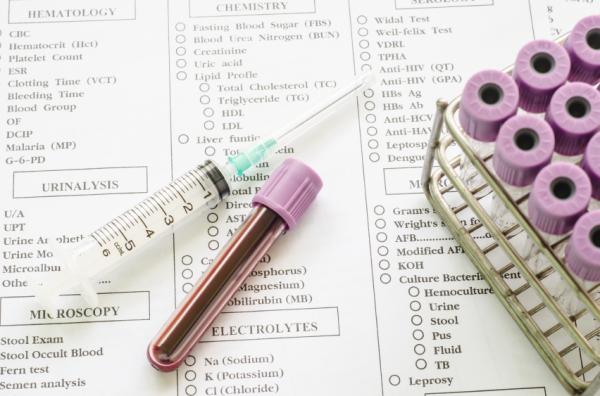Pregnancy is one of the most delicate and beautiful moments that a woman goes through throughout her life. If you have had sex without adequate protection and you think you are pregnant, you will be impatient to know if this has really happened or not. To find out, there are a number of tests that can confirm that you are going to be a mom. Blood pregnancy tests are one of these tests that you can perform quite close to the week of ovulation.

If you want to know about pregnancy tests, especially the blood pregnancy test, we advise you to keep reading because you will be interested in this article about “when can I do a blood pregnancy test?”.
When I can take a blood pregnancy test
Many of you wonder how long it is necessary to wait to do a pregnancy test with a blood test and that the result is as accurate as possible. However, it should be known that there is no single answer to this question, since it depends on the cycle of each woman, but normally you have a cycle that oscillates in the 28 days in most, so the positive result does not vary much from one to another.
The blood pregnancy test can be performed from the first week after ovulation, although it is recommended to wait for a delay in menstruation because hCG levels are higher and pregnancy tests will be more reliable.
What are hCG levels in blood and urine
Chronic Gonadotropin hormone (Beta hCG) is a hormone that is produced during pregnancy by a part of the placenta. Its main function is to prevent the corpus luteum of the ovary from disintegrating and to maintain the production of progesterone.
When you take a pregnancy test, such as the urine test or pregnancy test or blood test, your hCG levels are measured. This hormone increases from the implantation of the embryo in the uterus and can be detected in the blood from two weeks after ovulation.
Advantages of the blood pregnancy test over the urine test
There are not many differences between the blood pregnancy test and the urine test, but there are some advantages of the blood test over the urine test. In both the levels of hCG are detected but for its detection, in the blood tests it requires less time, since small amounts of this hormone can be detected and also allows you to know how much time the fetus has. The value of this hormone also allows you to know if the pregnancy is developing normally. For the urine test it is necessary to be fasting while for the blood test it is not.
When a Blood Pregnancy Test May Fail
There are many women who have complete confidence in the blood pregnancy test, but although it is not frequent, blood tests to know if you are pregnant can fail in the following cases:
- If it is done very early. Sometimes the desire to know if you are really pregnant leads, you to take the pregnancy test ahead of time and this can be an inconvenience since you could find yourself with a false positive.
- If you are taking any medications that may affect the outcome, such as hormone medications. That's why it's important to tell your doctor if you take any medications before you perform the test.
- If you have a hormonal problem and you are aware of it, you should consult with your doctor in case this problem could affect hCG.
- It may happen that the place where you have taken the test does not have the materials or the necessary conditions to perform a correct analysis, but in order not to lose clientele what they do is make discounts so it can be an economic advantage but a disadvantage at the time of the result.
How the blood pregnancy test is done
Here's how to take a blood pregnancy test in case you're a first-timer and have no idea what you're going to find.
First, blood will be drawn from a vein in your arm, such as when you have a routine blood test to check your overall health. Then, they will take it to analyze to see if there is pregnancy or not and other aspects that will serve to check if everything is correct, since in this test you can detect problems in the fetus such as Down syndrome.
There are usually no problems in the person having this test, but there are risks, such as excessive bleeding from clotting problems, dizziness or fainting, bruising or infection.







